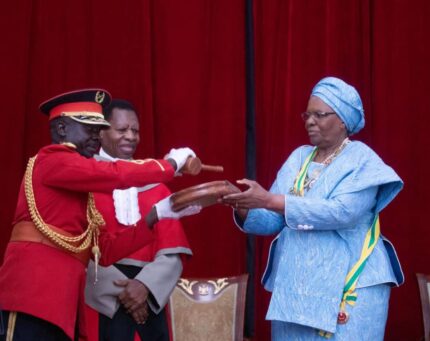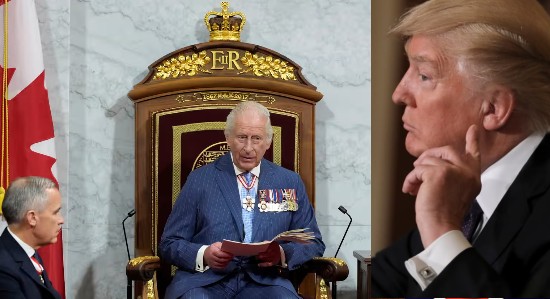– Netumbo Nandi-Ndaitwah was officially sworn in as Namibia’s first female president on Friday, marking a historic moment for the southern African nation. As she takes the helm, she faces the daunting challenges of high unemployment, economic inequality, and deep-rooted land ownership issues.
At 72 years old, Nandi-Ndaitwah secured her presidency with a commanding 58% of the vote in November’s election. A long-time member of the ruling South West Africa People’s Organisation (Swapo), she has pledged to address Namibia’s pressing socio-economic issues while also navigating the additional burden of being only Africa’s second-ever directly elected female president.
A Historic Presidency: Breaking Barriers
Nandi-Ndaitwah’s rise to power is a landmark achievement in Namibia’s political history. As the first woman to hold the country’s highest office, her presidency is expected to inspire future generations of female leaders in Africa.
“If things go well, then it will be seen as a good example,” she told BBC’s Africa Daily podcast. “But if anything then happens, like it can happen in any administration under men, there are also those who would rather say: ‘Look at women!'”
Her victory follows in the footsteps of Liberia’s Ellen Johnson Sirleaf, Africa’s first directly elected female president. Nandi-Ndaitwah joins Tanzania’s Samia Suluhu Hassan as one of the continent’s few female heads of state, further demonstrating the slow but steady progress of women in African politics.
Swapo Loyalty and the Legacy of Apartheid
Nandi-Ndaitwah’s political career is deeply rooted in Swapo, Namibia’s liberation movement-turned-ruling party. She joined the party at just 14, during its struggle against South Africa’s apartheid-era rule, and has remained a steadfast loyalist ever since.
While Swapo has governed Namibia since its independence in 1990 and made strides in improving the lives of black Namibians, the country still grapples with apartheid’s lingering effects. Economic disparities, especially in land ownership, remain stark.
“Truly, land is a serious problem in this country,” she stated ahead of her inauguration. “We still have some white citizens, and more particularly the absent landowners, who are occupying the land.”
Despite these challenges, Nandi-Ndaitwah has reaffirmed her commitment to the “willing-buyer, willing-seller” policy, which aims to redistribute land without forceful expropriation.
Economic Challenges and Vision for Growth
Namibia’s economy relies heavily on mineral exports, but unemployment and poverty remain persistent concerns. In 2023, the unemployment rate surged to 36.9%, a sharp rise from 33.4% in 2018. The World Bank estimates that poverty levels will remain high at 17.2% in 2024.
To combat these issues, Nandi-Ndaitwah has proposed shifting Namibia’s economic focus. She advocates for adding value to the country’s natural resources rather than exporting raw materials. She also aims to strengthen Namibia’s creative industries and reform the education sector to align with modern economic realities.
“We must ensure that our natural wealth benefits our people,” she said, emphasizing the importance of local industries and sustainable development.
Gender and Leadership: President Nandi-Ndaitwah for All
As one of Africa’s few female leaders, Nandi-Ndaitwah acknowledges the symbolic significance of her presidency. However, she is determined to be judged on her leadership rather than her gender.
“It is a good thing that we as countries are realizing that just as men can, women can also hold positions of authority,” she remarked.
Her leadership will be closely watched, both within Namibia and across the continent. She carries the hopes of many who believe her presidency could pave the way for greater gender equality in African politics.
Looking Ahead: The Road to Progress
Nandi-Ndaitwah’s presidency begins at a time of significant challenges, but also immense opportunity. Her ability to tackle economic hardships, reform land policies, and strengthen national unity will define her legacy.
As she embarks on this historic journey, Namibians and the world will be watching closely. Can she overcome the obstacles before her and lead Namibia toward a more prosperous and equitable future? Only time will tell.
For now, her inauguration stands as a powerful testament to the progress of women in leadership and the enduring resilience of Namibia’s people.














